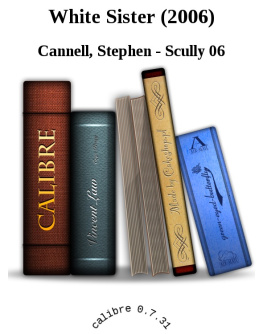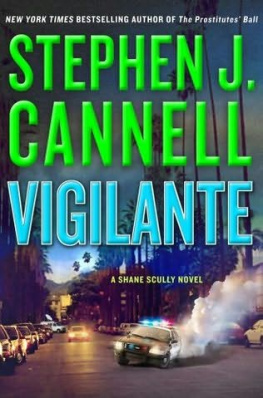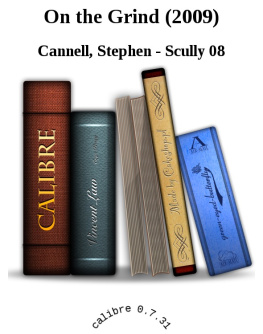Stephen J. Cannell - Runaway Heart
Here you can read online Stephen J. Cannell - Runaway Heart full text of the book (entire story) in english for free. Download pdf and epub, get meaning, cover and reviews about this ebook. year: 2004, publisher: St. Martins Paperbacks, genre: Detective and thriller. Description of the work, (preface) as well as reviews are available. Best literature library LitArk.com created for fans of good reading and offers a wide selection of genres:
Romance novel
Science fiction
Adventure
Detective
Science
History
Home and family
Prose
Art
Politics
Computer
Non-fiction
Religion
Business
Children
Humor
Choose a favorite category and find really read worthwhile books. Enjoy immersion in the world of imagination, feel the emotions of the characters or learn something new for yourself, make an fascinating discovery.
- Book:Runaway Heart
- Author:
- Publisher:St. Martins Paperbacks
- Genre:
- Year:2004
- Rating:5 / 5
- Favourites:Add to favourites
- Your mark:
- 100
- 1
- 2
- 3
- 4
- 5
Runaway Heart: summary, description and annotation
We offer to read an annotation, description, summary or preface (depends on what the author of the book "Runaway Heart" wrote himself). If you haven't found the necessary information about the book — write in the comments, we will try to find it.
Runaway Heart — read online for free the complete book (whole text) full work
Below is the text of the book, divided by pages. System saving the place of the last page read, allows you to conveniently read the book "Runaway Heart" online for free, without having to search again every time where you left off. Put a bookmark, and you can go to the page where you finished reading at any time.
Font size:
Interval:
Bookmark:
Runaway Heart
Stephen J . Cannell
*
Book Cover :
WHAT WOULD MODERN WAR BE LIKE IF The Front-Line foot soldiers were not our sons and daughters, but genetically engineered animals with superhuman strength and speed, and just enough intelligence to understand commands and follow them blindly?
This is exactly the weapon being developed at a base in the desert by a top-secret government agency.
Attorney Herman Strockmire, a rumpled man with a very big but defective heart, champion of lost legal causes and the infuriating nemesis of giant corporate polluters, becomes involved when one of his employees is literally torn limb from limb by one of the experimental prototypes.
At great personal risk, Herman, his beautiful daughter and law partner, Susan, and ex-LAPD detective Jack Wirta ignore all threats and plunge headlong into harm's way, finding themselves involved in a nightmare beyond anyone's wildest imagination....
This science exists today. The future is now.
Chapter One.
Herman Strockmire Jr., attorney at law, got his
fourth severe ventricular arrhythmia at 7:45 Tuesday morning while riding up to his borrowed office on the thirtieth floor of the Century City high-rise. It was the day before he was scheduled to appear in federal court to argue his case to protect the monarch butterfly. He was in the plush-pile elevator, rocketing upwards at blast-off speeds, his ears popping every ten floors, his short, bulging body feeling as if it were pulling at least two Gs. His heart arrhythmias always started with the same curious sensation: first a mild loss of energy, followed by a sinking feeling as if a hundred extra pounds had just been strapped onto his five-foot-eight-inch, lunchbox-shaped frame. This heavy sluggishness was immediately accompanied by a sensation of light-headedness that quickly left him-short of breath, dizzy, and slightly woozy. Fifty-five-year-old Herman didn't have to take his pulse to know that the old ticker had just gone into severe arterial flutter. He didn't have to, but he did anyway force of habit.
He set his faded briefcase down, grabbed his fat, furry left wrist, and wrapped his stubby fingers around it, finding his pulse.
"Jesus," he muttered into the elevator Muzak. "It's doing a damn fandango." He didn't want to count beats; didn't have to, really. He knew from past episodes that it was up over 150, maybe as high as 185.
I don't need this now, he thought.
On the thirtieth floor the elevator doors hissed open revealing the art deco foyer of Lipman, Castle &c Stein, Entertainment Law. They had thoughtfully placed a marbleized mirror on the opposing wall (actors love mirrors) and Herman Strockmire Jr. was forced to take a depressing personal inventory as he stepped off the elevator into his own sagging, bulging reflection. He looked like shit.
In the last ten years his Bavarian gene map had veered. The decade had turned him into a stocky carbon copy of his dead father.
Herman Strockmire Sr. had been a foundry worker a metal press operator banging out steel sheets in the humid heat of a Pittsburgh mill, each thudding, hammering stroke of the metal press pounding the poor, elder Herman shorter and lower, until the old German immigrant seemed like a fun-house distortion of a human being.
Now, as Herman Jr. studied himself in the law firm's marbleized mirror, he saw his dead father: short, Teutonic, absurd. The hand of gravity was reaching out with gnarled fingers and pulling him down toward the grave, while his runaway heart spun wildly out of control.
Herman's borrowed office at Lipman, Castle & Stein was an accommodation that his dear friend, Barbra Streisand, had arranged for him. These power brokers were her show business lawyers and they constantly reminded him of their huge respect for her star power. Star was spelled with a dollar sign at Lipman, Castle &c Stein. The partners, two Jerrys and a Marty, had acceded to Barbra's "request" and loaned him a small, one-window office that overlooked Century City and the Fox movie studios across the street. For some reason that defied natural selection, Herman had learned that most agents and entertainment lawyers were named Jerry or Marty, with a liberal sprinkling of Sids. Herman had spent the last two weeks in this slick retreat, doing pretrial deps and federal court writs.
Because the trial started tomorrow, Herman had driven in from Barbra and Jim's beach house early that morning, via Malibu Canyon Drive, just before sun-up.
Dear, sweet, politically conscious Barbra had not only prevailed upon her show biz attorneys to loan Herman the office while he was in L.A., but she had lent him the use of the ocean - front pool house at her Malibu estate while she and her husband James Brolin were on vacation in Corsica.
Herman and his thirty-year-old daughter, Susan, had been residing there, using the cars and eating the food, and had permission to do so until Herman's current federal case was adjudicated which, he figured, would be in about two weeks if he didn't die of a coronary first.
He shuffled down the hall to the men's room thinking it looked more like a sultan's harem than a shitter. Black marble floors, brown Doric columns, and decorator washbasins with arched dolphin faucets profiled under directional pin lights. The little, gilded, flippered critters spit water delicately into hammered artificial gold sinks. Herman hefted his briefcase full of writs, pretrial motions, and law books onto the marble counter and popped the latch. It wheezed open like a broken accordion. He rummaged around inside for his pill bottles and, finding the Warfarin first, shook two of the little capsules into his palm. They were blood thinners to prevent strokes during an arrhythmia. He dug out the
bottle of Digoxin that was supposed to control his heart rate, then grabbed a paper cup from the built-in dispenser. He had never before been in a corporate men's room that supplied Dixie cups. Herman tossed the pills into his mouth and washed them down. That was when he got a second look at himself in the well-lit bathroom mirror. He was used up and tired. He'd seen raccoons with subtler eye markings.
But he had no choice; he had to go on. He was on a mission, maybe the most important of his life. An entire species of butterfly was about to be wiped out by biologically enhanced foods. It wasn't just any butterfly he was fighting for, but the heart - stoppingly-beautiful monarch, the majestic creature that had introduced Herman to the wonders of nature as a child. He had studied the beautiful orange-and-black-winged treasures for hours as a boy, lying on his stomach in the grass behind his parents' tiny row house, marveling at their delicate markings, seeing in them God's divine artistry.
The monarch butterfly, once the most common in North America, was now in danger of going onto the endangered species list. Unless Herman blocked the FDA, EPA, USDA, and all the other federal letter agencies that controlled bio-enhanced foods, these priceless treasures of nature might disappear forever, unintended victims of the new gene-spliced Frankenfoods. Specifically corn.
His federal lawsuit was for injunctive relief and damages on behalf of two organizations chartered to protect the monarch. It had been filed and fast-tracked to beat the spring planting season. If successful, it would stop this year's trans-genetic corn crop from going into the ground in May and would pay out damages to his two client organizations. However, the real reason for the suit was to force the government to reexamine the long-term, downstream effects of bio-enhanced food.
Herman felt a surge of anger as he had these thoughts, and with it adrenaline coursed through his tired, sluggish body, doing
god-knows-what to his already jackhammering heart. He fumed about his lawsuit and the arrogant disinterest of the government watchdog agencies and private labs he was suing. The biologically enhanced corn was engineered to kill off mites and pests that ate the cornstalks, but because of inadequate or sloppy testing, it was killing the monarch butterfly as well, and no one else seemed to give a damn.
Font size:
Interval:
Bookmark:
Similar books «Runaway Heart»
Look at similar books to Runaway Heart. We have selected literature similar in name and meaning in the hope of providing readers with more options to find new, interesting, not yet read works.
Discussion, reviews of the book Runaway Heart and just readers' own opinions. Leave your comments, write what you think about the work, its meaning or the main characters. Specify what exactly you liked and what you didn't like, and why you think so.

